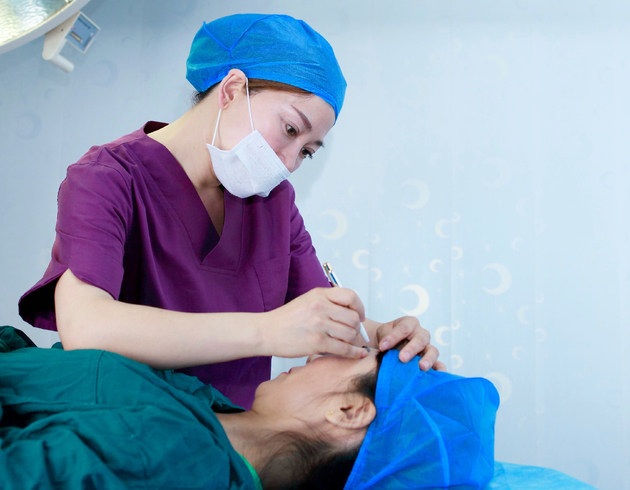
Photo/Shetuwang
Jan. 7 (NBD) – The news of a 19-year-old girl who died during a nose surgery has sparked widespread concerns about the safety standards of China's fast-expanding cosmetic surgery industry.
The girl, surnamed Xia, was a nursing student. She went to Guizhou Limeikang Hospital to take the surgery on January 3, and lost her life due to anesthesia complications, according to the hospital.
In 2010, singer Wang Bei, who had participated in popular TV singing contest Super Girl, died when taking cosmetic surgery in a Wuhan hospital.
China has surpassed Brazil to become the world's second largest market for aesthetic medicine.
According to statistics from the International Society of Aesthetic Plastic Surgery, China's plastic surgery market grew by the compound annual growth rate of 42.23 percent from 2015 to 2017, and the rate predicted for 2018-2020 period is 29.35 percent. The market is expected to reach 315 billion yuan by 2020.
SoYoung, China's popular social network for plastic surgery, released a report on the industry in 2017, which showed that in every 100 cosmetic surgery consumers, 53 are born after 1990. The industry has huge potential when the youngsters born after 1995 and 2000 grow up since they have more liberal attitude towards consumption, said the report.
The plastic surgery industry comprises of two parts: the upstream manufacturers of medicines and devices, and the downstream plastic surgery institutions, advertisement agencies, platforms like SoYoung and insurers.
The plastic surgery providers mainly consist of public hospitals and privately owned hospitals, as well as smaller clinics and beauty salons. According to a research by AskCI Consulting, currently there are over 10,000 aesthetic medicine institutions, of which only about 11 percent are public hospitals or plastic surgery divisions within public hospitals. In 2016 privately owned hospitals took nearly 70 percent of the market share.
Due to fierce competition and lack of authoritative ratings, riskes are hiddened behind the fast expansion of private plastic surgery hospitals.
Limeikang, the parent company of Guizhou Limeikang Hospital, is a listed company on National Equities Exchange and Quotations. According to its financial report, the company has 9 branches in cities like Shenzhen and Zunyi, and it plans to have 300 chain clinics by 2023.
NBD noted that Limeikang's expansion partly comes from buying and repurposing plastic surgery clinics.
It is not uncommon for private plastic surgery providers to buy clinics or license their brands to scale up. Yestar Aesthetic Medical Group, the nation's second largest private aesthetical medical company, revealed in its prospectus that apart from the 15 institutions directly owned, the group also licensed its brand and provided consulting services to Ningbo Yestar and Nanjing Yestar. The latter two were fined by authorities in 2018 due to illegal advertising.
Email: limenglin@nbd.com.cn


 川公网安备 51019002001991号
川公网安备 51019002001991号





